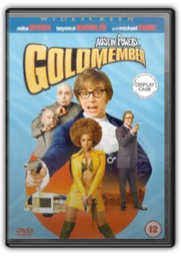
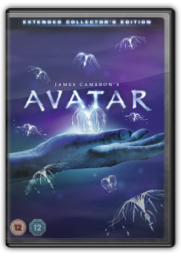
After 12 years of thinking about it (and waiting for movie technology to catch up with his visions), James Cameron followed up his unsinkable Titanic with Avatar, a sci-fi epic meant to trump all previous sci-fi epics. Set in the future on a distant planet, Avatar spins a simple little parable about greedy colonizers (that would be mankind) messing up the lush tribal world of Pandora. A paraplegic Marine named Jake (Sam Worthington) acts through a 9-foot-tall avatar that allows him to roam the planet and pass as one of the Na'vi, the blue-skinned, large-eyed native people who would very much like to live their peaceful lives without the interference of the visitors. Although he's supposed to be gathering intel for the badass general (Stephen Lang) who'd like to lay waste to the planet and its inhabitants, Jake naturally begins to take a liking to the Na'vi, especially the feisty Neytiri (Zoë Saldana, whose entire performance, recorded by Cameron's complicated motion-capture system, exists as a digitally rendered Na'vi). The movie uses state-of-the-art 3D technology to plunge the viewer deep into Cameron's crazy toy box of planetary ecosystems and high-tech machinery. Maybe it's the fact that Cameron seems torn between his two loves—awesome destructive gizmos and flower-power message mongering—that makes Avatar's pursuit of its point ultimately uncertain. That, and the fact that Cameron's dialogue continues to clunk badly. If you're won over by the movie's trippy new world, the characters will be forgivable as broad, useful archetypes rather than standard-issue stereotypes, and you might be able to overlook the unsurprising central plot. (The overextended "take that, Michael Bay" final battle sequences could tax even Cameron enthusiasts, however.) It doesn't measure up to the hype (what could?) yet Avatar frequently hits a giddy delirium all its own. The film itself is our Pandora, a sensation-saturated universe only the movies could create. —Robert Horton 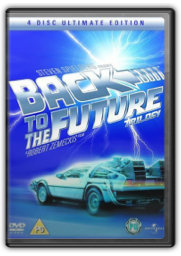
Has Hollywood produced many more rounded, enjoyable trilogies such as this? We think not, and it’s real testament to the quality of the Back To The Future trilogy that it all holds up so spectacularly well over twenty years since the first film appeared. 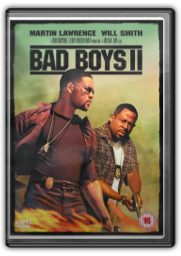
Bad Boys II fulfils every audience expectation and then some: no-one goes to a movie directed by Michael Bay for delicacy and grace; you go because Bay (Armageddon, The Rock) knows how to make your bones rattle during a high-speed chase when a car flips over, spins through the air and smacks another car with a visceral crunch. Will Smith and Martin Lawrence may be mere puppets amid all this burning rubber and shrieking metal, but they actually provide a human core to the endless cascade of car wrecks and gunfights. Their easy rapport makes their personal problems—a running joke is Lawrence's attempts at anger management—as engaging as the sheer visual hullabaloo of bullets and explosions. The plot is recycled nonsense about drug lords and dead bodies being used to smuggle drugs, but the orchestration of violence is symphonic. If that's your thing, then this is for you. —Bret Fetzer 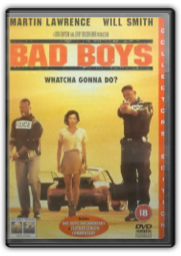
Slick to a fault, this glossy action flick takes place in sunny Florida, where Martin Lawrence and Will Smith play two cops—one married with kids, the other a swinging bachelor. The two are forced to trade places to foil criminal mastermind Fouchet (Tchéky Karyo) who has stolen $100 million worth of heroin from a police lockup. Violent, illogical and filled with wall-to-wall profanity, Bad Boys was the last film produced by the hit-making team of Don Simpson and Jerry Bruckheimer before Simpson's untimely death and marked the directorial debut of Michael Bay who followed up with The Rock. Bad Boys will be of interest to action buffs and fans of Téa Leoni, who makes one of her early screen appearances in the central supporting role. —Jeff Shannon 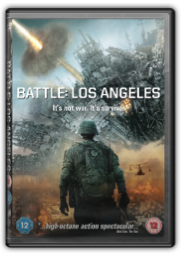
Battle: Los Angeles is a war movie first, science fiction second. It's got it all: a burned-out retiring sergeant who gets drawn back in because, dammit, the Marines need him; the guy who's about to get married; the guy who's still a virgin; the guy suffering from shell shock and who just might crack; the newbie officer with a lot of book learning who you just know is going to freeze under pressure and have to be shepherded by that burned-out sergeant, who learned his lessons on the battlefield… and so much more. There's not a moment in this movie you haven't seen before—the only twist is that the enemy is alien, so whatever shred of concern you might have for raining heavy artillery on a fellow human being can be cheerfully cast aside. But clichés are clichés because they are efficient and effective, and despite the profound familiarity of Battle: Los Angeles, there's no denying the movie rips along (though two-thirds of the way through you may have forgotten who was the virgin and who was the shell-shocked guy—but really, does it matter?). The look owes a debt to District 9, a hand-held, vérité grittiness, with most of the CGI carefully given a dingy, dirty look so that it meshes with the urban landscape. Aaron Eckhart (The Dark Knight) does an impressive job of spitting out ham-fisted dialogue like he really, really means it, while the rest of the cast is suitably generic. This is an unrepentant love letter to the military; many viewers, faced with the unsettling chaos and moral ambiguities of real wars, will find this mythologizing not only soothing, but even moving. —Bret Fetzer |
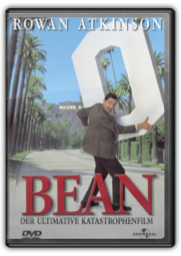
Translating Rowan Atkinson's Mr Bean character from British television to the big screen takes a bit of a toll, but there are some hilarious sequences in this popular comedy. The eponymous Bean, a boy-man twit with a knack for getting into difficult binds (and then making them worse and worse and worse), is a London museum guard who is sent to Los Angeles in the company of the famous painting Whistler's Mother. He's mistaken as an art expert by the well-meaning curator (Peter MacNicol) of an LA museum, but Bean's famously eccentric behaviour soon causes the poor guy to almost lose his family and job. The insularity of Bean's TV world is sacrificed in this film, and that change diminishes some of the character's appeal. But Atkinson is a man naturally full of comedy, and he doesn't let his fans down. —Tom Keogh 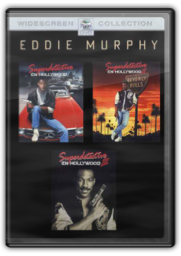
Eddie Murphy, Judge Reinhold, John Ashton, Bronson Pinchot, John Landis Directors: Martin Brest, Tony Scott 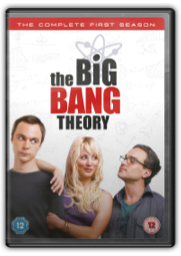
The delightful sitcom The Big Bang Theory revolves around a character type rarely seen on television: the alpha geek. Physicists Leonard (Johnny Galecki) and Sheldon (Jim Parsons) get their lives shaken up when an attractive young woman named Penny (Kaley Cuoco) moves in to the apartment across from theirs. The key to the show, though, is not that they both fall haplessly in love—Leonard does, but Sheldon remains impermeably aloof and caustic about anything resembling romance or human relationships in general. While the push and pull of Leonard's yearning for Penny motivates much of the series' ongoing plot, the show's real drive comes from Sheldon's fantastic combination of obsessive-compulsive neurosis and grandiose obliviousness. He's a brilliant comic creation, imperious and dorky, a seamless collaboration of clever writing and an inspired performance by Parsons. Whether Sheldon loses his job for insulting his new boss, or finds his ego bruised by a child prodigy, or finds himself unable to bear being part of a lie that Leonard has told, he attacks the world with a relentless need to assert his supremacy—and the results are deeply funny. 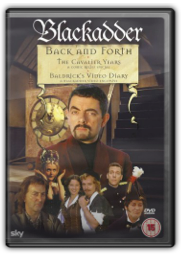
It seemed a good idea at the time: to celebrate the end of the millennium by resurrecting Edmund Blackadder for a one-off special Blackadder: Back and Fourth. Unfortunately, those responsible for Back and Forth got the cart before the horse. The Blackadder television series worked by recasting the same characters in different times, thereby reinforcing the dynamic between Blackadder and the buffoons who ran his life (World War One generals, various idiot royalty) and the troglodytes whose lives he ran (Baldrick). Given that most of us feel most of the time like the people we work for are useless and the people that work for us are even more useless, Blackadder's concept had a huge appeal. 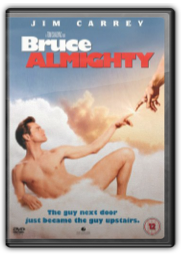
Bestowing Jim Carrey with godlike powers is a ripe recipe for comedy, and Bruce Almighty delivers the laughs that Carrey's mainstream fans prefer. The high-concept premise finds Carrey playing Bruce Nolan, a frustrated Buffalo TV reporter, stuck doing puff-pieces while a lesser colleague (the hilarious Steven Carell) gets the anchor job he covets. Bruce demands an explanation from God, who pays him a visit (in the serene form of Morgan Freeman) and lets Bruce take over while he takes a brief vacation. What does a petty, angry guy do when he's God? That's where Carrey has a field day, reuniting with his Ace Ventura and Liar, Liar director, Tom Shadyac, while Jennifer Aniston gamely keeps pace as Bruce's put-upon fiancée. Carrey's actually funnier before he becomes Him, and the movie delivers a sappy, safely diluted notion of faith that lacks the sincerity of the 1977 hit Oh, God! Still, we can be thankful that Carrey took the high road and left Little Nicky to Adam Sandler. —Jeff Shannon |

Ben Giles
Collection Total:
201 Items
201 Items
Last Updated:
Dec 9, 2011
Dec 9, 2011

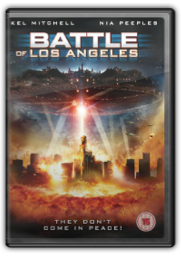

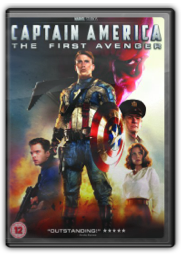
 Made with Delicious Library
Made with Delicious Library